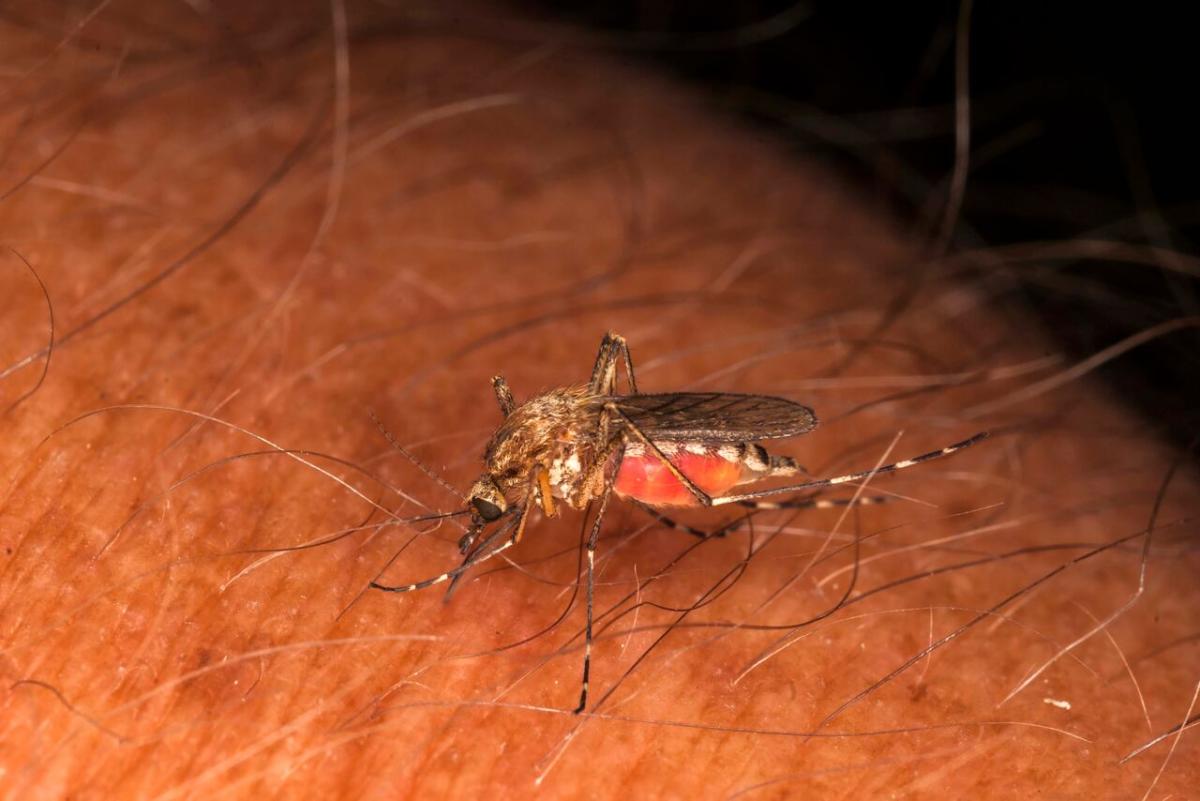Vermont’s health department is urging residents of several towns, including one bordering Quebec, to stay indoors from dusk to dawn to prevent the spread of a mosquito-borne illness.
Certain towns are considered at high risk for eastern equine encephalitis (EEE), which the state’s health department describes as a rare but serious disease caused by a virus that spreads through the bite of an infected mosquito.
High-risk towns currently include Alburgh, Burlington, Colchester and Swanton. Swanton is about eight kilometres from Quebec and Alburgh borders the province.
While only a few human cases are reported in the United States each year, none have been confirmed in Quebec to date, according to Quebec public health.
“However, the infection can be asymptomatic and, in such cases, go unnoticed,” said spokesperson Marie-Claude Lacasse in an email.
The virus has been present in Quebec for many years, and several equine cases indicate more active viral circulation in Quebec this year, she said.
Humans are ‘accidental hosts’
The virus primarily spreads through mosquitoes that typically feed on the blood of certain bird species, but when these mosquitoes bite humans or other mammals, the virus can be transmitted.
Since humans are not the main target for the virus, humans are considered “accidental hosts.”
“However, with climate change, conditions may become more favourable for its transmission to humans and other mammals,” said Lacasse.
“It is recommended to protect yourself from mosquito bites by applying insect repellent and wearing long, light-coloured clothing.”
Quebec public health recommends several other steps people can take to prevent mosquito bites, including the elimination of standing water from around homes.
EEE, like all neuroinvasive arboviral diseases, is a notifiable disease, meaning health-care professionals are required to report confirmed cases to Quebec health authorities.
Earlier this week, health authorities in New Hampshire reported that a resident who tested positive for EEE has died.
EEE detection on the rise in Vermont
This season there have already been 47 groups of mosquitoes that tested positive for EEE virus across 11 Vermont towns, compared with 14 groups across three towns that tested positive in 2023, the department says.
In August 2024, a human case of EEE was detected in Chittenden County, the first human case in Vermont since 2012.
A map on the Vermont Department of Health’s website shows the areas at high risk.
Vermont state health officials strongly recommend that people in towns at high risk avoid spending time outdoors as much as possible between 6 p.m. and 6 a.m. to avoid mosquitoes that could carry the virus, the website says.
The recommendation will be in place until the first hard frost that kills mosquitoes, and additional testing could increase the number of towns considered high risk.
Quebecers shouldn’t worry, experts say
There are no human vaccines to prevent or medicines to treat EEE. Infections can result in encephalitis, an inflammation of the brain, and can be fatal in about one-third of people who develop a severe case, the health department says in a news release Wednesday.
Most people infected with EEE virus do not develop symptoms, but those who do may experience a flu-like illness with fever, chills, body aches and joint pain, it says.
Dr. Karl Weiss, chief of infectious diseases at the Jewish General Hospital, said the majority of people infected do not develop symptoms, or if they do, the symptoms aren’t significant enough to seek medical consultation. Even then, doctors may not test for the virus, he added.
Dr. Alex Carignan, a microbiologist and infectiologist with the CIUSSS de l’Estrie in the Eastern Townships, said the virus is not something Quebecers should be worrying about. Weiss said the same, noting it’s nothing like COVID-19.
“Thankfully, it’s a virus that is very rare,” said Carignan.
Dr. Donald Vinh, an infectious diseases specialist from the McGill University Health Centre, said the increase in detection in the United States may be the canary in the coal mine as climate change may be increasing the frequency or severity of outbreaks, he said.
“We know that if we have changes in our seasons, bird migration patterns may change,” said Vinh, meaning they may return or leave Canada sooner than expected. “If we talk about a certain percentage of them being infected, than it leads to the propagation and prolongation of the cycle between birds, mosquitos and eventually mosquitos and other animals.”
In the short term, people should take steps to prevent bites, and in the longer term “we have to think about climate-related activities that may be making things worse,” Vinh said.

